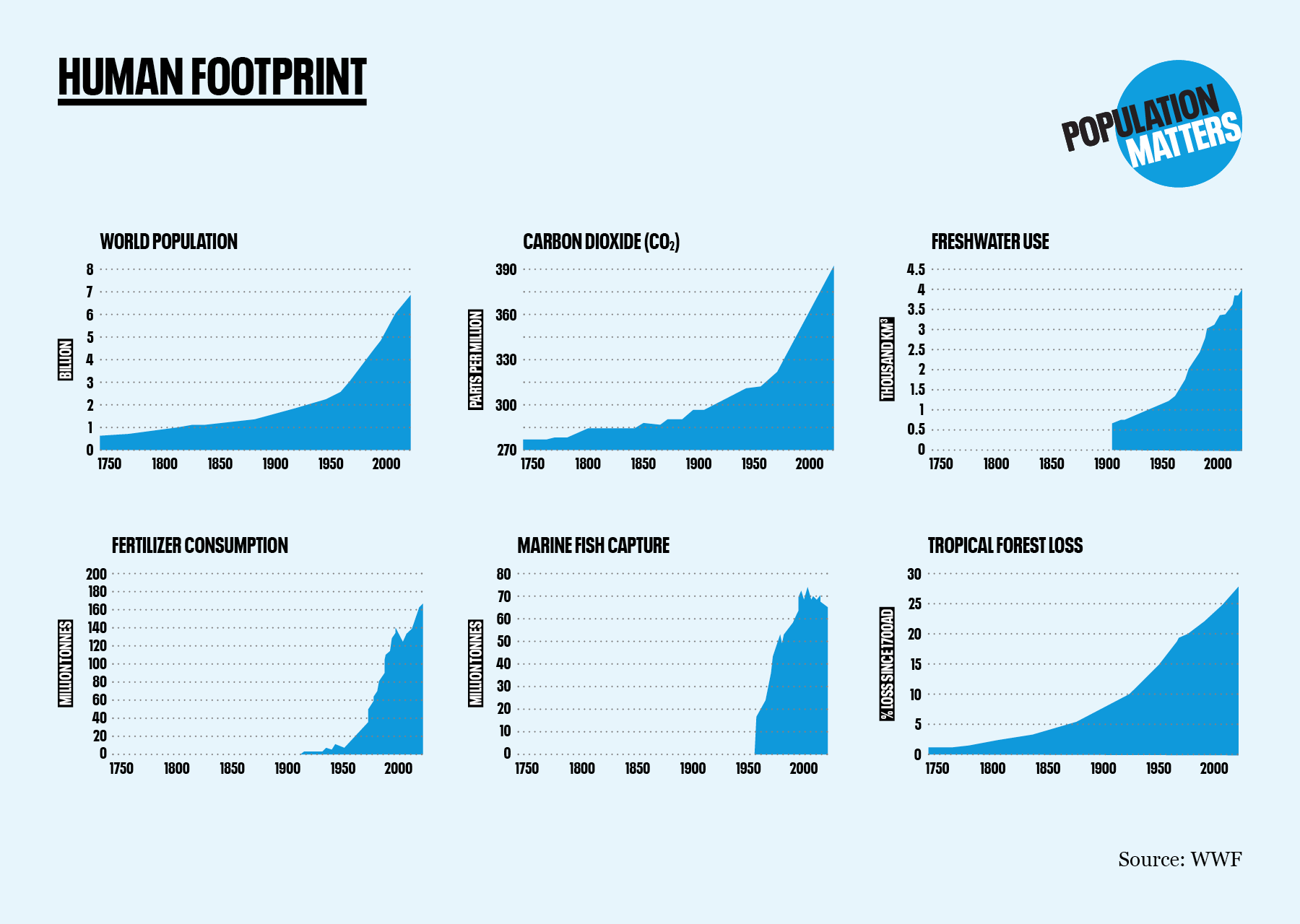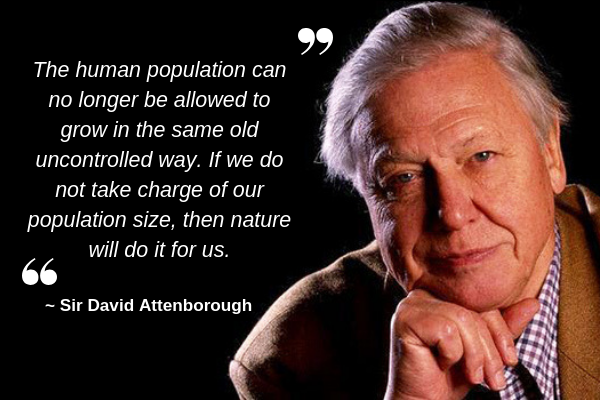
Key WWF report fails to address overpopulation
WWF International’s latest report on the state of the world’s wildlife once again shies away from addressing the ‘elephant in the room’. As one of the world’s most influential and popular environmental organisations, WWF is failing in its duty to confront the main driver of species decline: unsustainable human population pressure.
Plummeting wildlife

The Living Planet Report 2018 (LPR 2018), released earlier this week, revealed that humanity has wiped out 60% of the world’s vertebrate wildlife between 1970 and 2014. LPR 2018 states that only one quarter of land on Earth is “substantively” free of the impacts of human activities and that this is projected to decline to just one tenth by 2050. Particularly worrying findings include an 83% crash in the global population of freshwater vertebrates (amphibians and fish) and an 89% decline in South and Central America’s wildlife over the last 40 years. The report lists the causes of biodiversity loss, primarily habitat destruction and overexploitation, but disappointingly does not link these to our rapidly growing population which has now surpassed 7.6 billion and is expected to reach 9.8 billion by 2050.
Turning a blind eye to population
LPR 2018 refers to the challenge of an “exploding” human population and even includes a figure that matches our exponential increase with identical curves for environmental changes, including tropical forest loss, carbon dioxide emissions, and marine fish capture. Confusingly and in direct contradiction to the evidence they present, the authors blame only unsustainable consumption for these grim trends and completely ignore population, the other half of our impact on the planet.
The report even explicitly states in classic ‘population avoidance phrasing’ that “It is economic development and the growth of the world’s middle classes, not population rise per se, that is dramatically influencing the rate of change of Earth’s life support system.”

Replacing ineffective solutions with more of the same
WWF rightly states that business-as-usual conservation efforts are not adequate for halting, let alone reversing, the rapid erosion of biodiversity. The big NGO is calling for an urgent Paris-style global agreement for “nature and people”, but focusing solely on reducing consumption is both ineffective and insufficient. Population Matters Director Robin Maynard said:
“For an otherwise courageous conservation organisation, campaigning and delivering practical action to staunch our world’s haemorrhaging wildlife, the Panda is strangely silent on the subject of human population. Our population has more than doubled over the past 50 years, whilst populations of wild animals have more than halved. Consumption rates in rich countries show no sign of levelling off, whilst at the same time, the number of high-level consumers across the world is set to double. People in poorer countries indeed deserve a fairer share of the Earth’s resources. So, yes, we have to address human consumption, but in harness with addressing the inconvenient issue of human population – we will not succeed in saving nature or enabling everyone everywhere to live decent lives unless we do.”
Growing support
Many respected scientists and environmental bodies recognise the urgent need to solve population problems. A 2017 study published in PNAS blames overpopulation and continued rapid population growth as the main driver of the sixth mass extinction. Project Drawdown shows that educating girls and family planning combined generate savings of 120 Gigatonnes of carbon dioxide, making these the most effective means to curb climate change.

Over 20,000 scientists from 184 countries have issued a second warning to humanity, 25 years on from their initial one, saying that by failing to limit population growth, “humanity is not taking the urgent steps needed to safeguard our imperilled biosphere.”
Sir David Attenborough, perhaps the world’s best loved conservationist, leading primatologist Dame Jane Goodall, renowned late zoologist Aubrey Manning, as well as naturalist and broadcaster Chris Packham, are all patrons of Population Matters and have called for much-needed action on population. Sir David is also ambassador for WWF-UK – it is unfortunate that the organisation does not back up his important message.
It is a dereliction of duty to our one planet, its wild species and indeed some of the poorest people living today that WWF’s proposed solutions fail to incorporate ethical measures to reduce human population pressure, including women’s empowerment and universal access to family planning, which are vital to meeting sustainable development goals and protecting the natural world.
Population Matters is calling on organisations which educate the public about the natural world to face the facts and inform people about overpopulation – please support our campaign.
Read our President Jonathan Porritt’s take on WWF’s overpopulation denialism here.
